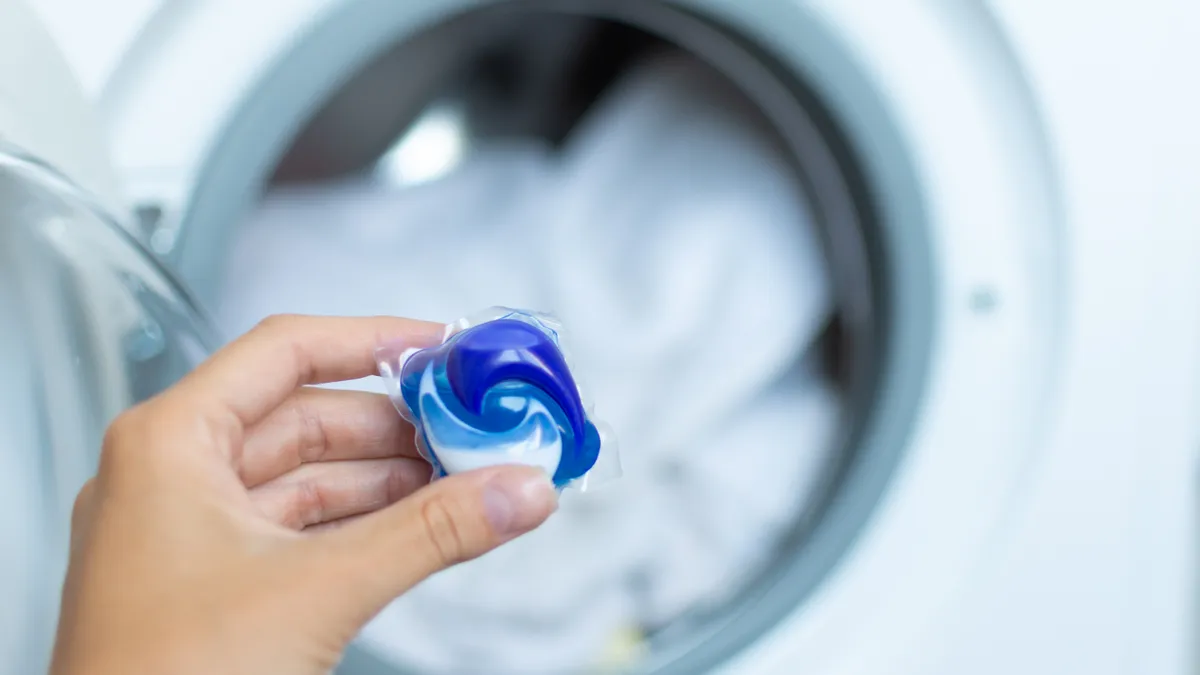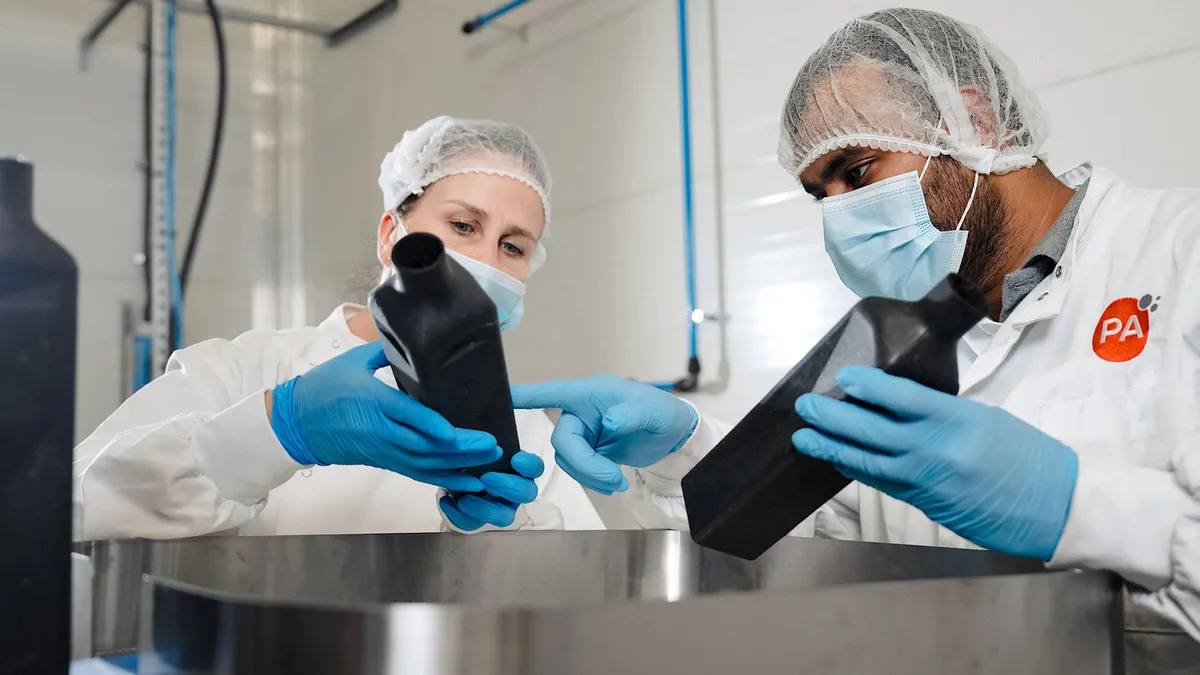Dive Brief:
- A bill introduced in New York City on Thursday would ban the sale of laundry and dishwasher pods and sheets containing polyvinyl alcohol, a water-soluble polymer also called PVA or PVOH, come Jan. 1, 2026. At the local retailer level, violators could face fines.
- Council Member and Environmental Protection, Resiliency & Waterfronts Committee Chair James Gennaro introduced the bill with an aim of limiting micro and nanoplastic pollution.
- New York City-based company Blueland — a main campaigner for the bill and maker of dissolvable cleaning products for use in refillable containers, including laundry tablets — hopes it could also shift the market toward reusables.
Dive Insight:
More than a decade after Procter & Gamble launched Tide Pods in 2012, a premium product popular for their convenience, pods represent 22% of laundry detergent sales, according to the American Cleaning Institute in 2023. Liquid still represents 72% and powder 6%.
Blueland has been actively campaigning for heightened scrutiny of PVA for years. The company has supported research related to laundry and dishwasher pods that suggests more than three-quarters of intact plastic particles can pass through wastewater treatment facilities and wind up in the environment, and ultimately the food chain, the company says. In partnership with nonprofits fighting plastic pollution, Blueland previously petitioned the U.S. EPA to remove PVA from its Safer Choice and Safer Chemical Ingredients lists until it conducts health and environmental safety testing on PVA in consumer packaged goods. EPA denied the petition in April 2023.
Blueland describes the New York City bill as a first-of-its-kind action in the U.S. and asserts that restricting pods and sheets won’t burden consumers, given the range of alternatives at lower prices, or plastic-free options they say come at comparable prices.
“The hope is to move the market to alternatives that don't involve this plastic that is designed to go down our drains,” said Blueland co-founder and CEO Sarah Paiji Yoo. “Our hope is that this will be an impetus for companies broadly to innovate beyond single-use plastic and the use of single-use plastic for pods and sheets and other single-dose mechanisms.”
There’s debate on how well these plastics dissolve. Bloomberg cited 2023 research in the journal Chemistry & Chemical Technology that called into question manufacturers’ degradability claims for the films. The study concluded that there was sediment in pipes after such pods are used, “resulting in the formation of microplastics, which later enter the environment.”
But the American Cleaning Institute — whose members include P&G, Clorox, Unilever and Church & Dwight — came out against the bill, saying they “dissolve completely,” adding that they do not contribute to pollution nor contaminate recycling streams.
“The innovation of water-soluble films and laundry detergent packets is a sustainability success story. They help consumers safely use, dose and store the products, making chores easier to do for everyone, including those with disabilities. They can be designed for cold water wash cycles, reducing the footprint associated with heating water,” ACI wrote in a statement Thursday. The group also said pods’ compact nature helps reduce transportation emissions.
The Consumer Brands Association said that “PVA are used safely and effectively in millions of households every day.”
“This bill not only lacks merit but attempts to circumvent our country’s science and risk-based review processes that prioritize consumer and environmental health and safety,” Sarah Gallo, vice president of product policy at the Consumer Brands Association, said in a statement highlighting EPA’s “stringent review criteria” for Safer Choice.
New York City has a ban on plastic bags and allows single-use food ware by request only.
Editor’s note: This story has been updated with comment from the Consumer Brands Association.















